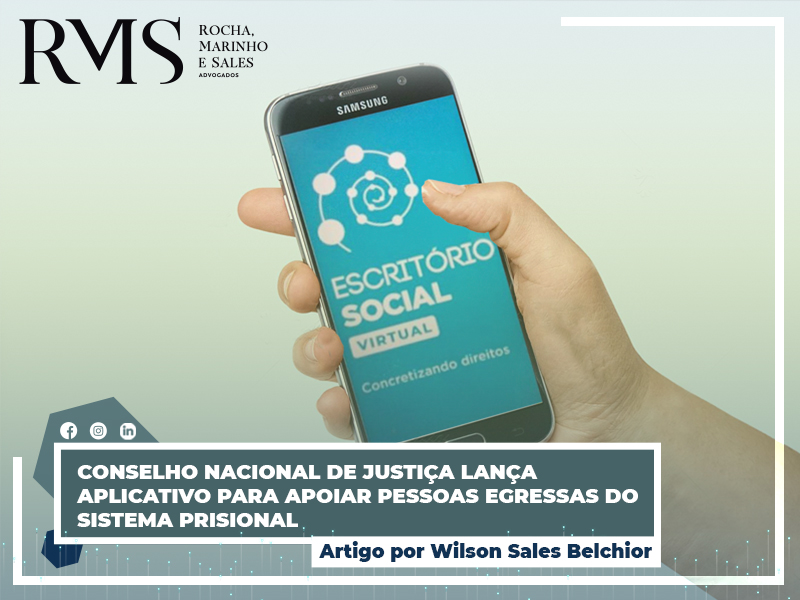Caio Cesar Rocha: the end of advocacy?
11/02/2021

Jurist Caio Cesar Rocha analyzes how technology and the use of artificial intelligence could transform the profession in the future
In 2008, British author and researcher Richard Susskind published a book that became an immediate reference in the study of the relationship between law and technology.
By prophesying the commodification and the consequent transformation of one of the most traditional professions in the face of the inevitable advances in information technology, Susskind became a heretic for some, and a visionary for others. His work is one of those that takes us out of the comfort zone, as it presents a question that, if it is distressing for us lawyers, can be seen as redemptive for other niches of society: the day will come when lawyers will be unnecessary?
More than 10 years after the first edition of “The End of Lawyers – rethinking the nature of legal services” (Oxford University Press – 2008), the question seems to be more and more current (the book can be found here on this link). In an interview with the American TV channel Bloomberg, Susskind spoke a little about the subject: clique aqui.
VISIONARY OR HEREGE? Researcher Richard Susskind believes that robots
will do the work of lawyers
Virtual lawyers
Recently, researchers at the University of Goethe, Frankfurt, published the first manuscript produced entirely by artificial intelligence. A summary of 1068 articles on the characteristics of the lithium battery. The algorithm / program / author is called Beta Writer – writer beta1.
In the presentation of the book there is an alert for the lack of fluidity and style of the text. One might think: they have already created a typewriter capable of writing like a lawyer! Aside from play, the relevance of achievement is undeniable, which enhances research capacity, accelerates the power of synthesis, improves access to information and knowledge and promotes an increase in professional production capacity. Countless may be the impacts of such a tool on the legal universe.
It is already common practice in Brazil’s advocacy, especially in large offices specializing in the so-called “mass advocacy”, to have software or algorithms that “read” initial petitions. Such tools select them, classify them by themes, prioritize in order of value, analyze the risk involved, and when faced with such information, they produce an initial draft of response or even indicate the achievement of an agreement. Some programs do the reading in the act of the initial protocol, since they monitor the various digital procedural systems on behalf of certain parties 24 hours a day, anticipating in many days, or even months, the time that the party has to prepare its response.
At the invitation of Migalhas, I will explore in this space the impacts of information technology for the future of law. Controversy is always inevitable when changes to the status quo are imposed. Certainly, traditional lawyers, perhaps with some reason, will have reservations about the unrestricted application of technology in the legal environment. But the setbacks that some have had with typing in the past, or the digitization of processes more recently, have not prevented both technologies from being universally adopted.
If it is certain that it is not (yet) the end of advocacy, it does not seem exaggerated to say that we live in the beginning of the end, not of advocacy in its essence, but at least of advocacy as we know it today.
It remains for us lawyers – especially the youngest of age and spirit, to prepare for the new times. Numerous practical problems are imposed in the face of this new reality: issues such as market reserve, reduction of jobs, the need to regulate algorithms that simulate the work of lawyers, adaptation of court procedural systems to allow and facilitate access to automated systems (“Robots”), devaluation and commercialization of law by clients who will see it as a necessary input and no longer as a service. In addition to these there are more complex questions, even philosophical ones, that deserve analysis: How to ensure the observance of ethical precepts by automated systems? Will the lawyer become an IT manager just to oversee automated production? Is it possible for the same system to produce the petition and the decision? Can a technology company provide services to courts and law firms as well?
The contemporary lawyer needs to look to the future without prejudice: technology is here to stay and change the structures of the profession. It is necessary to understand that healthy innovations must prevail. Evolution cannot simply be closed, bearing in mind that institutions, including law, will always seek to preserve the problems for which they are the solutions. Since there is no point fighting against reality and the power of technology, what if we start to unite and take advantage of innovations?
1 Follow the link for those interested in learning more about lithium batteries: click here.
Source: Website Migalhas
https://www.migalhas.com.br/dePeso/16,MI302834,31047-O+fim+da+advocacia




